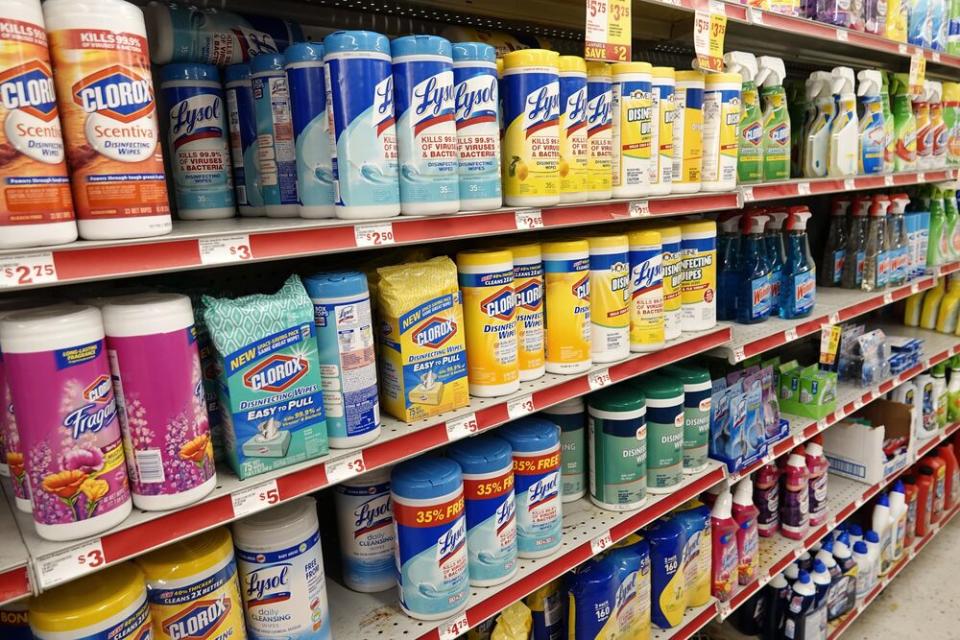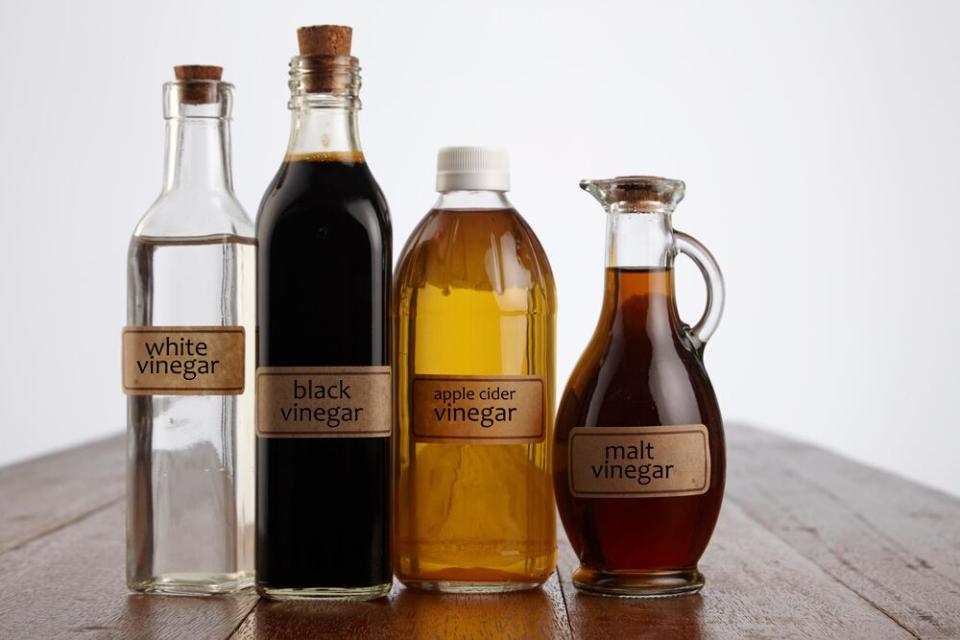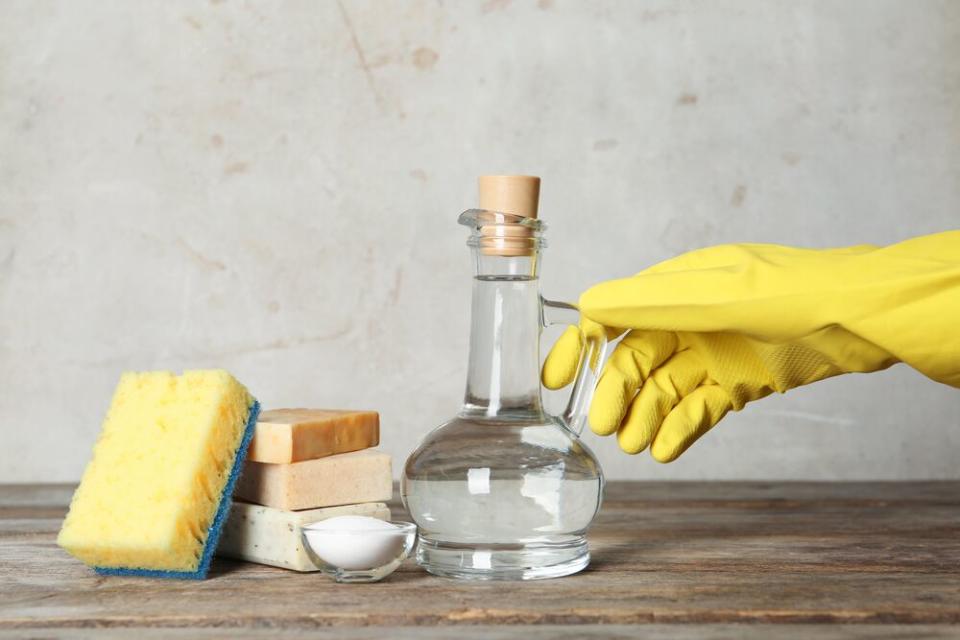Is Vinegar a Disinfectant?
Vinegar is often recommended as a household cleaner—but can the pantry staple stand up to colds, flu, food poisoning, and COVID-19 (the coronavirus)?
Does Vinegar Kill Germs?
Yes, vinegar does kill germs—but it’s probably not as effective as commercial cleaning products like Lysol and Clorox.
White vinegar’s base is acetic acid, a chemical compound that has been proven to kill bacteria and viruses.
Its effect on germs that cause foodborne illness (like salmonella and E. coli) has been studied extensively.
Vinegar vs. Commercial Cleaning Products

Here’s the thing: While white vinegar is effective at killing illness-causing germs, it’s not nearly as effective as commercial household cleaning products.
According to one study that compared natural household cleaning products (like vinegar and baking soda) to commercial cleaning products (like Lysol, Clorox, and Mr. Clean), natural cleaning products are less effective than against potential bacterial pathogens.
Related: How to Store Vinegar the Right Way
So What About the Coronavirus?
The coronavirus spreads most frequently through respiratory droplets, according to the most recent research from the CDC. In other words, being within 6 feet of an infected person who is coughing or sneezing is the most common way people are infected.
Still, the CDC is strongly urging people to routinely clean frequently touched surfaces (tables, doorknobs, light switches, handles, desks, toilets, faucets, sinks) with household cleaners and EPA-registered disinfectants.
FYI: Vinegar is not on the EPA’s list of recommended disinfectants.
White Vinegar vs. Apple Cider Vinegar as Disinfectants

If you can’t or won’t use commercial cleaning products, opt for white vinegar over other types of vinegar.
While apple cider vinegar and wine vinegar are also effective against germs, they’re not as effective as white vinegar because they’re less acidic.
How to Clean With Vinegar

Once again: Experts recommend commercial cleaners when it comes to disinfecting, especially when it comes to the coronavirus.
If—after thorough research and consideration—you choose to go the natural route, The National Sanitation Foundation suggests combining white vinegar with water in a 1:1 solution to clean glass, windows, walls, cupboards, floors, sinks, stovetops and coffee makers. Don’t use it on natural stone, waxed wood, cast iron or aluminum.
A vinegar solution is also not suggested for surfaces with a high risk of food contamination, such as cutting boards, refrigerator shelves, and refrigerator drawers. For those, opt for something a bit more powerful (like bleach).
Another word of caution: Never, ever combine vinegar with bleach or hydrogen peroxide. This can result in extremely dangerous toxic vapors.
The Bottom Line
Cleaning frequently touched surfaces with white vinegar is an effective way to kill many illness-causing bacterias and viruses. However, it’s not as effective as commercial cleaning products like Lysol and Clorox.

